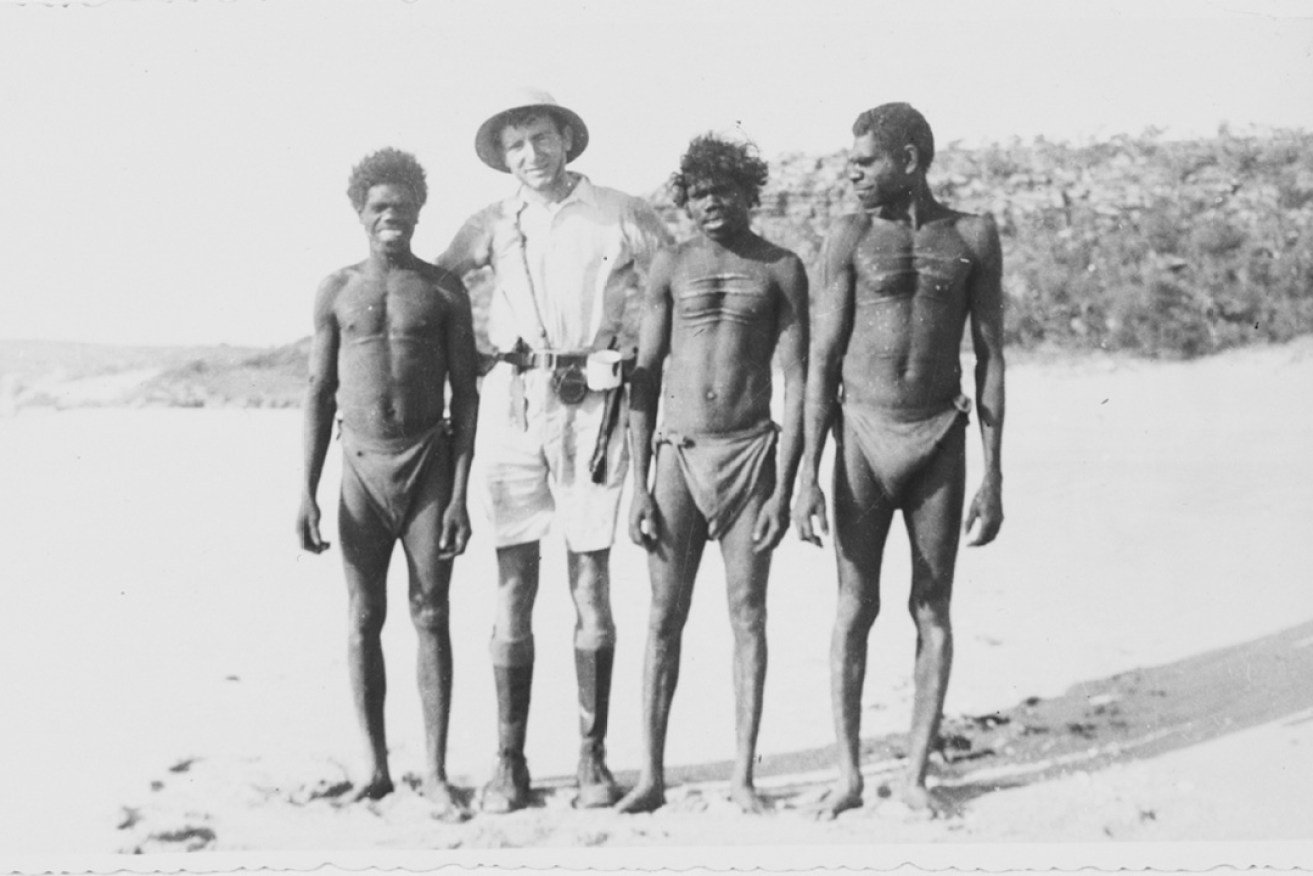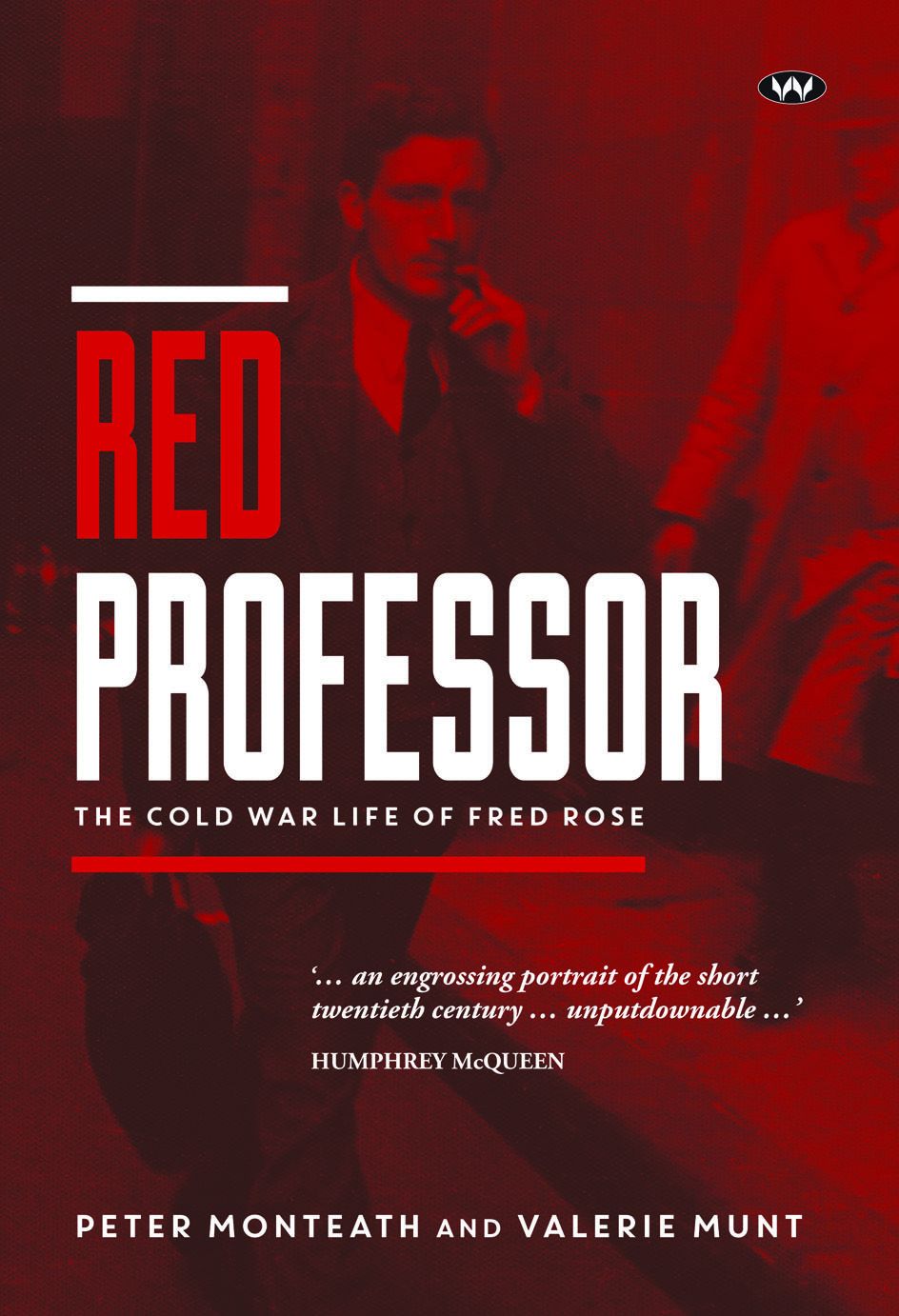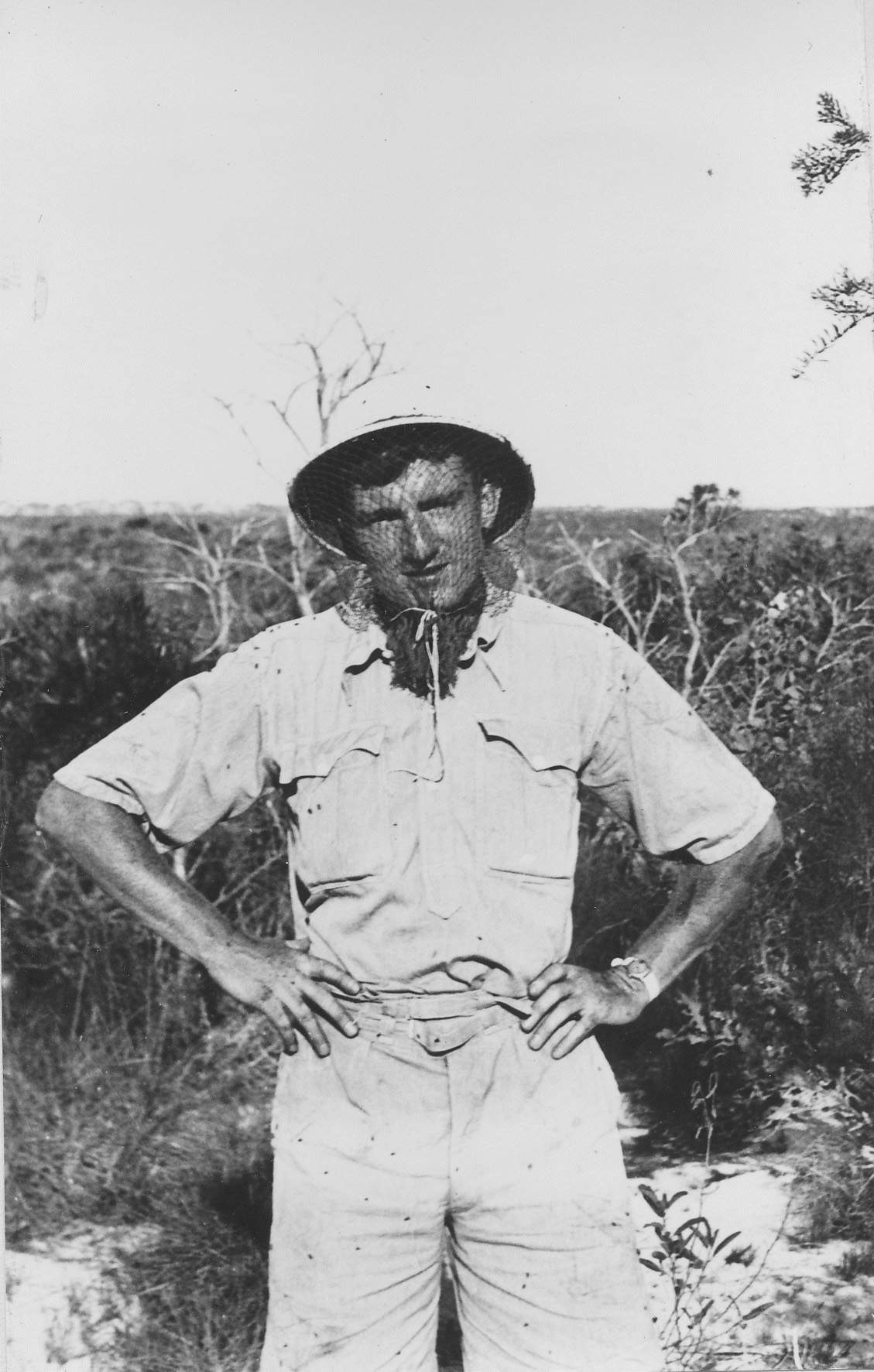
Red Professor’s legacy goes beyond politics
While Red Professor: the Cold War Life of Fred Rose (Wakefield Press Adelaide, 2015) reads almost like a political thriller, it is much more than that.

The outstanding and important book on the life and work of anthropologist Frederick Rose (1915-1991) by Flinders University historians Peter Monteath and Valerie Munt will help provide this under-recognised scientist with a legitimate place in Australia’s historical pantheon.
Unfortunately, the majority of Australian reviewers of Red Professor – with a handful of notable exceptions – have failed to focus sufficiently on his major contribution to Australian anthropology and on how his work contested the institutional racism of that time.

Front cover of Red Professor, The Cold War Life of Fred Rose (2015, Wakefield Press) by Flinders University historians Professor Peter Monteath and Dr Valerie Munt. Photo courtesy the authors and Wakefield Press.
Instead, for the most part reviewers’ commentaries have fixed on his well-known reputation for womanising and his putative, but never substantiated, espionage activity during his Australian years. In other words, Rose’s legacy has been compromised by a focus on what people thought he might be doing rather than what he was actually doing.
Fortunately Monteath and Munt’s painstakingly researched book provides us with a major focus on his anthropological work.
It details the background of his struggles with various anthropological eminences grises – at the time mostly men of cloth with a belief in assimilation – and how he was often actively prevented from receiving research funding and denied permission to go out into the field.
Red Professor was shortlisted for the 2016 Prime Minister’s History Prize. While in the event it was trumped by Geoffrey Blainey’s historical juggernaut The Story of Australia’s People: the Rise and Fall of Ancient Australia (Viking; Penguin Australia 2015), which won the major prize, Monteath and Munt’s compulsively readable Red Professor not only highly readable but its filmic qualities render it eminently suitable for a movie or a television series. This work is set to become a classic of Australian historical non-fiction.
What Fred Rose did and how this informs Australian anthropology
While at Cambridge, Rose was strongly influenced by the ethnographic research of anthropologist Bronislaw Malinowski whose approach to fieldwork was based on participant-observation. This redefined the field and was a major influence on Rose’s later fieldwork with the Anindilyakwa people of Groote Eylandt in Arnhem Land.
Rose’s fieldwork with the Anindilyakwa people became increasingly informed by his Marxist materialism.
In practice this meant that he understood classical Aboriginal kinship structures and relationships as superstructure founded on a substrate economic base. In undertaking his groundbreaking, economically based analysis, Rose shook up certain entrenched views about the complexities of kinship systems.
In doing so he clarified the raison d’etre that underpinned the observably gerontocratic foundation of Aboriginal society. Essentially such social arrangements were organised to ensure that every social actor could participate to maximise their economic, educational and social contribution during all stages of the human life cycle, young, middle-aged, or old.

Fred Rose with fly net on ridge of sandhills to the north-east of the flying base and boundary of the Aboriginal reserve on Groote Eylandt, 1938. Rose family collection; image courtesy Wakefield Press.
While there was a degree of gender blindness in Rose’s approach, this is forgivable because he did not work closely with Aboriginal women. This would have aroused suspicion and probably ended his research not only with Anindilyakwa people but also his later anthropological work undertaken in Central Australia. (Rose’s oft-discussed womanising didn’t extend to Aboriginal women).
Rose’s brilliant analysis of Aboriginal educational practices also has its basis in people’s participation in the economic and knowledge economy during all phases of life.
The following passage from his 1987 book, The Traditional Mode of Production of the Australian Aborigines (Angus and Robertson), written in relation to the Anindilyakwa people, is equally applicable to other Aboriginal groups:
“… How then was an Aborigine able to approach within less than 20 yards of a kangaroo without being observed? … this ability was quite different from his ability to track the animal and it was rarely reported. Above all, it demanded an extraordinary knowledge and understanding of the behaviour of the animal. In other words the Aborigine had to be a highly skilled practical ethologist.
“This knowledge was acquired in two ways, first from his own practical experience of hunting, and second, and equally important, from the instruction that was given him by the older, more experienced men during his initiation. This instruction was not just the passive acquisition and repetition of the myths and songs about the various totem animals, although these certainly contained much of ethological value; the young man, again under the guidance of the older men, was obliged to act by mime the behaviour of the animal. This was also part, and a very important part, of the educational content of initiation and increase ritual. It was, moreover, a procedure that extended over many years, during the course of which, in association with his practical experience of hunting, the initiate improved his knowledge of animal behaviour.”
This passage nicely demonstrates not only Rose’s observational acuity, but also his ability to convey this with clarity and precision.
A full version of the article can be found in The Conversation:
https://theconversation.com/the-red-professor-and-the-white-anting-that-continues-to-this-day-68338
Also read other articles in The Conversation: Friday Essay: land, kinship and ownership of ‘Dreamings’ and We wore ‘Shame Fraser’ T-shirts – but his passing is a genuine shame




